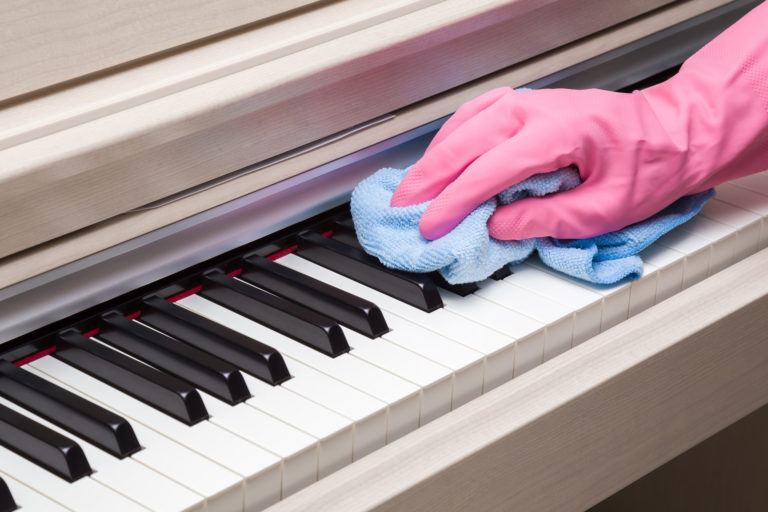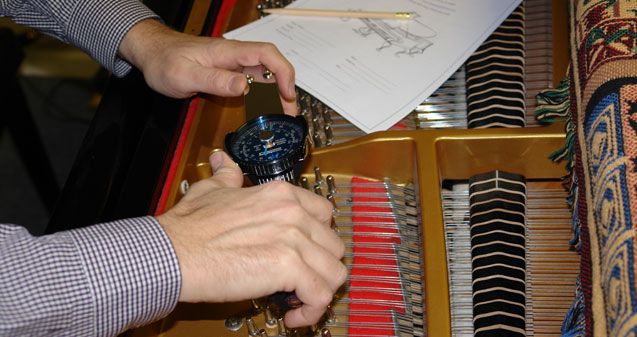How To Take Care Of Your Piano
Although pianos have gone through more than a hundred years of detail improvement on an already stabilized design, many owners are renowned for their neglect of this fine instrument, thinking that pianos do not need much maintenance. However, there are still limits to the life of today’s pianos.
To further extend the life of your piano, do take note of the following tips:
1. Tune Your Piano Regularly

It is a common fallacy that tuning is required only to the degree that a piano is used. Even if the instrument is kept in good condition and up to pitch, it should be remembered that the tension on the strings is always present, and even after correct tuning, there is an average drop of 5 cents per month.
Cent is a unit of measure used to represent and compare musical pitches and intervals.
It is recommended by most manufacturers to tune your piano a minimum of twice a year to prevent the piano strings from losing its correct pitch. This is caused by strings stretching further from use, hence losing its tension.
New pianos, on the other hand, require up to four tunings in the first year. This is especially important as the strings have not yet fully stretched.
2. Clean The Outside Of Your Piano

You can use a clean dusting cloth to wipe away any dust from the piano’s surface. As for the piano keys, use a soft and dry cloth to wipe away dirt in an up and down motion. If you use a side-to-side motion when cleaning, it will push dirt and moisture in between the keys. If the keys are very dirty, use a soap solution and cloth and wrung out well.
Avoid using aerosol cleaners that contain chemicals, silicon or solvent.
COVID-19 (Coronavirus) Advice and Recommendations
After wiping your piano, immediately put the towel or disinfectant hand wipe in the trash and wash your hands. Do not use reusable towels or cloths which could spread germs to your friends or family who want to play the piano.
3. Do Not Clean Your Piano’s Interior
Leave all internal components such as the action, strings, and soundboard to a qualified piano technician to clean and service. It is very important to not perform any repairs on your own or clean the inside of your piano.
4. Avoid Placing Objects On Top Of The Piano
Do not place food, drinks or even plants on your piano. Any liquid on or even near the piano is potentially dangerous. If water enters the piano, the damages would be severe as metal parts can rust or even damage the hammer and action. In addition, do not place heavy or unstable objects as it may cause noisy vibrations as well.
These precautions will help to prevent costly repairs and protect the value of your investment. After all, a quality piano is not cheap.
5. Schedule Servicing By A Skilled Piano Technician

We recommend having the piano checked over at least once a year by a piano technician. You may not be able to detect it early but a piano “wear and tear” is often much subtler. This is no different from the periodic maintenance your car requires or the vitamins you need daily to prevent serious illnesses.
After all, it costs much lesser to properly maintain your piano than to let it fall into disrepair, lose all resale value and buy another piano.
Conclusion
The most important thing about taking care of your piano is that you find a good piano technician and adopt a schedule of regular servicing. This is because a good piano technician is thoroughly familiar with all facets of piano maintenance and is always be prepared to advise the owner as a valued client.
By observing these piano care tips, you can extend your piano’s lifespan which will continue to give you and your family greater enjoyment year after year and avoid any preventable damage to your prized piano.

